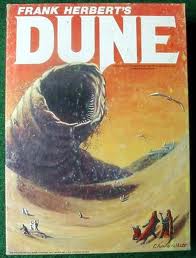Stephen Edwin King, who requires no introduction is typically associated with Horror, but many people overlook his Science Fiction works mainly because he focuses on terror and fear in those instances.
He has published several works that belong squarely in the realm of Sci-Fi, such as “The Mist” (which was an excellent short story, and I maintain that it should be spelled “The Myst”), “Tommyknockers“, “Dreamcatcher“, “11/22/63“, “Cell“, “Under the Dome“, “The Langoliers“, and “The Regulators” written under his pseudonym of Richard Bachman.
I have to admit, that like other Sci-Fi fans on the net who are a bit leery of praising King, I was tempted to qualify this post in the usual SF nerd way by saying “I don’t typically like horror, and have nothing against Stephen King but…..” and when I was younger I went through a phase where I did in fact believe that if something was popular it was by definition not good. Stephen King helped me to get over that misconception, yes he is tremendously popular, and perhaps at times those who profit from him squeezed a little too hard instead of letting his ideas coalesce, but I maintain that his Sci-Fi works are solid examples of good and influential SF.
I remember when I was a teenager, and was out of things to read, and my aunt suggested I read her Stephen King book “Skeleton Crew”, I was not at all enchanted with the idea of reading something my aunt thought was great, but out of desperation I started leafing through it, and came across “The Mist” and was thoroughly sucked in, I realized I was reading Sci-Fi, and actually finished the story wanting more (the rest of the book didn’t deliver for me the way that story did) and I realized that the story had come across to me in a way that other Sci-Fi typically didn’t do, somehow the character registered in my brain as ‘more real’, and started to wonder why other Sci-Fi characters seemed more cerebral, and not quite as down to earth as in this story. Perhaps horror in Sci-Fi needs to be explored more.
His book “Dreamcatcher” has always been close to my heart, it was clever, scary, managed to have an Alien reference (they called the disease “The Ripley” in reference to Sigourney Weaver’s archetypal character), had cool aliens, psychic powers etc, and was heart warming, I also suspect that I was strongly attracted to the closeness of the central male characters in the book and movie, perhaps because I am a gay man.
Cell, was a very thrilling and interesting book based on a brilliant idea. The basic idea of the story is that one day, a celestial event of some kind, perhaps an accident, perhaps an attack, known as “the Pulse” hits the Earth, and everyone who was on their cell phone at that instant has their brain wiped, leaving behind only reptilian primal impulses, turning them into vicious zombies, and worse, these vicious zombies start to develop a hive mind, and mental powers such as flight and telepathy. I don’t particularly know why, but the fact that the zombies loved certain songs, like Bette Midler’s “Wind Beneath My Wings” gave me a creepy apprehension about these creatures. It’s up to a small group of un-affected humans to try to survive. At least one thing I find really cool about this story, is that no matter how outlandish it seems, King made zombies scary in a fresh and new way (Hierarchy of zombies: Slow Romero Zombies, Fast running Zombies, Flying Telepathic Zombies) and the story was a very good read (altough the writing style seems a little unusual for King, perhaps ghost-written) and I do recommend the above works as good Sci-Fi.












You must be logged in to post a comment.